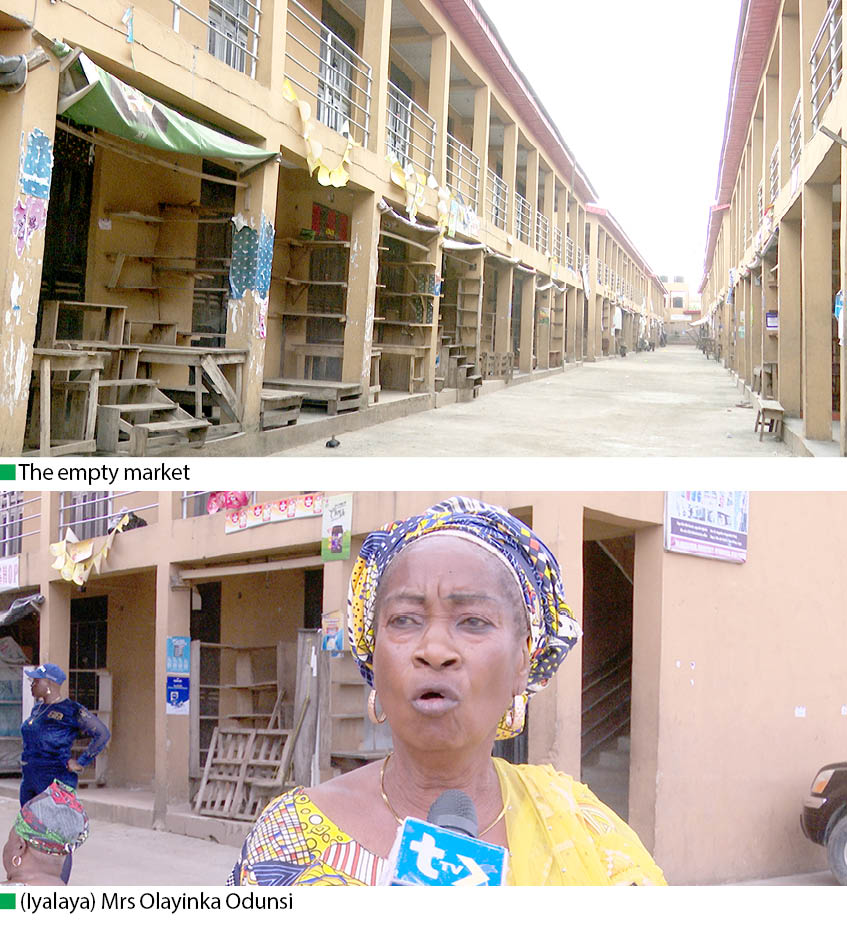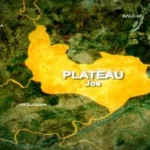In an effort to sanitise the environment, the Lagos State Government recently pounced on markets, malls and facilities contravening the state’s environmental law of 2017. This has, however, put the livelihood of millions in jeopardy as several markets across the state have been shut. Daily Trust on Sunday reports.
At the last count, no fewer than five markets were shut within the last two weeks, amidst rising concerns over environmental infractions as the traders allegedly failed to comply with the provisions of the state’s environmental law, which requires the occupants of a building or facility to provide waste receptacles to be used for depositing waste.
The government, therefore, said the closure spree was part of efforts to tackle “pervasive filth in markets across the state.”
The markets shut so far include Ile Epo, Alamusi Ologede, Mushin, Tejuosho plazas, Ladipo spare parts markets in Ikeja; Oyingbo market, Alayabiagba. Several malls around Lekki have also been shut.
FG urged to adopt Uwais electoral reform report to save democracy
Student retention: 16, 260 girls to get cash incentives in Bauchi
Shutting down the Alamutu market, the managing director of the Lagos Waste Management Authority (LAWMA), Dr Muyiwa Gbadegesin said, “It is paramount that we maintain a hygienic environment in our markets. This action is not just a response to the Alamutu market conditions but a part of LAWMA’s ongoing commitment to ensuring that markets in Lagos meet the required standard of cleanliness and sanitation.”
But traders have continued to raise concerns over indiscriminate closure of markets, saying the timing is not only wrong but adding to their woes in moments of challenging economic conditions.
For instance, Ile Epo market, the popular foodstuff market in the state, remained sealed a week after it was shut down with traders counting their losses.
The market located at Ile Epo in Agbado-Oke Odo Local Council, along the Lagos-Abeokuta expressway was sealed by officials of LAWMA.
A seal order pasted at all the entry gates at the market reads: “The state government has observed that you have contravened the provisions of the Lagos State Environmental Management and Protection Law, number 10 Vol. 50, 2017 and the Lagos State Waste Management Law, 2017.
“You are, therefore, urged to comply fully with the provision of the law and pay the stipulated fines into the coffers of LAWMA before your premises can be reopened.”
Some of the traders were seen outside the market lamenting the development, which they said had cost them fortunes.
While the seal order indicated that the closure was due to environmental concerns, some of them also blamed the development on the clashes between officials of the market and revenue collectors over exorbitant charges.
Thadeus Oluwadare said, “For any small car to enter the market, a N3,000 levy would be paid, while N10,000 is paid on buses and trucks. Some trailers pay N30,000, some pay N20,000, and if any of the drivers refuses to pay, they would not allow him to enter. What we are saying is that this levy would be transferred to consumers and members of the public.”
Another trader said millions of naira werer lost daily as no truck or vehicle could come into the market to offload goods.
“What we are losing on a daily basis is in millions. The people trading in that market are approximately about two million people every day. We urge the state government to unseal the market as this is not the best time for people to be denied their means of livelihood.
“The entire economy of Agbado Oke Odo has been crippled. We don’t have a government at all. Now we are looking at maybe Tuesday before they reopen it because there is public holiday tomorrow,” another trader, Mrs Sididat Adeleye said.
Exactly a week after the market was shut, the traders are at a loss amidst rising hardship, losses and the denial of their means of livelihood occasioned by the market closure.
Some of the leaders of the market who spoke with Daily Trust on Sunday said the continued closure was an attack on their daily bread. They also said the inner parts of the market were clean, while blaming the observed filthy environment on those trading outside the market along the expressway.
One of the market leaders (Iyaloja), Mrs Olayinka Odunsi said, “The market was shut down because many people were displaying their goods along the expressway. That was what they saw and concluded that our market was dirty. The inner parts of the markets are not really dirty.
“Yam and pepper sellers are those who display their goods on the expressway indiscriminately. When we noticed this, the leadership of the market asked those traders selling along the expressway to desist forthwith. We sent them away but they kept coming back until the government now intervened and shut the entire market.
“We appeal to the government, especially our amiable governor, Babajide Sanwo-Olu, to consider the plight of thousands of traders making a living in this market. Most of us are breadwinners and it would be difficult to survive without coming to the market in one day. This is our only source of livelihood. It is from whatever we make in the market daily that we also send our children to school and fulfill other obligations to our families.
“We are begging our governor reopen this market. We have lost fortunes over the closure of this market. Many trucks of fresh vegetables, yam and several items have spoiled over the closure of this market. We have destroyed several trucks of pepper.”
Abdulkareem Abdullahi, Baba Oja Toluwalase of Ile Epo also said, “Our market has been shut for the past five days. They said this was as a result of environmental offences, but I can tell you that our market is not dirty, we do sanitation every Thursday. I can tell you that our market is not dirty, but some people outside the market were responsible for the littering of the market.
“We are pleading with our government, especially the LAWMA, to bear with us. We have taken steps to ensure that our market is always neat. We call on the authorities to reopen our market because we have lost millions of naira.”
As at the time of filing this report, the popular spare parts market in Ladipo is also under lock and key, with thousands of traders groaning. It is the most popular motor spare parts market in the state, with a large concentration of Igbo traders. Many of the traders who spoke with our correspondent alleged that they were asked to pay a huge sum of money to get the market reopened.
One of the traders there, Callistus Chukwunenye said, “It is absolute nonsense to lock people out of their source of income. People are suffering, and instead of you helping them you decided to lock their shops with the excuse that the markets are dirty. Why can’t you lock the shops in a day and everyone in that market joins hands to clean it up?
Also, the Federation of Informal Workers Organisations of Nigeria (FIWON) condemned the development and called on well-meaning Nigerians to prevail on the Lagos State Government to stop blocking access to people’s means of livelihood.
The general secretary of the FIWON, Comrade Gbenga Komolafe, in a chat with Daily Trust on Sunday said, “Twice we have done mass protest around this issue of market closure, eviction and what have you.
“It is just to call on well-meaning Nigerians to also prevail on the government because when you keep talking to a government that is not ready to listen, the next thing is to appeal to everybody beyond those who are immediately concerned because at the end of the day it affects everybody.
“Apart from the fact that people who patronise those markets would also be affected, the long term consequence of rendering people without access to their livelihood also has implications for everybody. So, many people are thrown into desperation. It is an established sociological fact that the more people you push in desperation the more crime and other associated activities you also have.”
He rejected the reason given by the government for closing the markets, saying the reasons are spurious and exemplify the failure of governance.
He said, “The reason they have given, apart from being spurious, raises a lot of questions about what the different agencies of government and departments are actually doing. What is the local council doing?
“These markets are supposed to be supervised by local governments and there is a whole department in the local government structure committed to environmental sanitation in the community. It should be their primary duty, on a daily basis, to go round and ensure that there is basic sanitation standard and to see that it is maintained.
“You don’t just wake up one day and say, ‘this place is dirty’ and just lock it up. It is silly and punitive to just lock people’s livelihood up.
“What have you been doing? There should be people who go there, but we all know the failure in that respect. They go there and extort money from these women instead of doing their work, which is actually to ensure that these markets are kept clean. This is apart from the fact that these market women pay special levy. They are made to pay special levy for environmental sanitation. So, what’s that levy for?”
As many markets are still under lock and key, there is tension in other markets across the state with traders apprehensive of possible invasion of their markets by the environmental authorities.
But the managing director of the LAWMA said the agency was determined to “enforce sanitation regulations uniformly across all markets, regardless of location or size.”
Also, the Commissioner for Environmental and Water Resources, Mr Tokunbo Wahab, whose ministry supervises LAWMA and gives all the directives on market closure said, “It is imperative that markets in the state adhere strictly to environmental laws and regulations put in place for the well-being of residents. The closure of Ladipo market serves as a stern reminder that no entity, regardless of its size or influence, is above the law.”

 Join Daily Trust WhatsApp Community For Quick Access To News and Happenings Around You.
Join Daily Trust WhatsApp Community For Quick Access To News and Happenings Around You.


